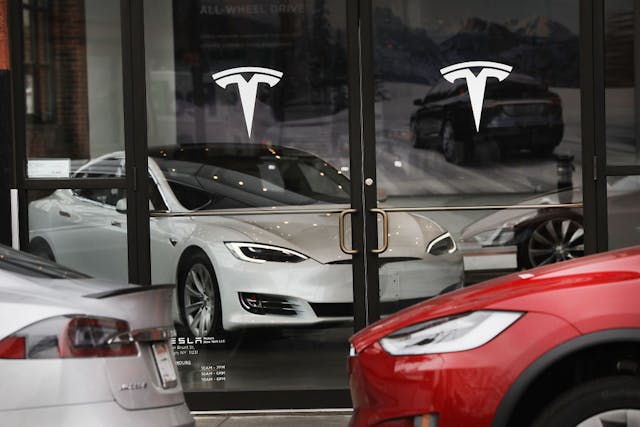Michigan house bill allows Tesla to sell cars, other EV startups get no juice
Michigan’s ban on direct sales from an auto manufacturer meant that, for many years, buying a Tesla was much more of a pain in the Mitten than it was in some other states. Tesla sued to change the rules in 2016 and settled this January. With the passing of Michigan House Bill 6233 last week, Tesla can sell cars directly to customers. Except, not precisely—and, more importantly, the arrangement only applies to Tesla. We’ll explain.
All Teslas sold in Michigan must indicate in the sales contract that “the sale took place in a state other than Michigan” before a transfer of title can take place. That’s a fair bit of paperwork for Tesla’s Michigan retail staff, but customers can take delivery of their new luxury whip without leaving the state. The same applies for service after the sale, as Tesla will now “indirectly own service and repair facilities in Michigan through a subsidiary, Tesla Michigan.”
So what more can we glean from this bill? For one, other startup automakers (like Rivian) must do the same song and dance to earn the right to retail vehicles in Michigan. However, this rigmarole might not be as expensive or as protracted now that lobbyists hold House Bill 6233. Waving this bill might be their only play, given that Tesla settled out of court; the absence of formal precedent means substantial legal bills for anyone looking to cut a similar deal.
(The Ford+Rivian tie-up could avoid the whole mess, if both sides agreed to utilize Lincoln’s dealer network. After all, Rivian’s hyper-expensive electrified machinery is a natural fit with the ethos of Lincoln’s white glove Black Label concierge service.)
While dealership network sharing didn’t exactly pan out for Pantera in the 1970s, it brings up an important question: How much do you love/hate the car dealership experience—and the franchise model that undergirds the system?
After spending nearly a decade in auto retail, I know the dance and I’ll gleefully put in the leg work to save that federal green. I wanna know which dealership is hungriest for my business, and that’s where the franchise model excels. Individual dealerships have unique issues surrounding their (sometimes crippling) inventory costs, as well as sales targets needed to appease the manufacturer. Not everyone is willing to do the hours of work needed to get the best deal on a new vehicle*, which involves tedious sessions of internet trawling and email typing.
With all of that in mind, there is real appeal among car shoppers for direct-to-consumer sales, which removes the perceived hassle and runaround of dealership negotiations. But who benefits from that appeal? Tesla and their intended EV competition aim for buyers with good credit, or plenty of cash lying around. Indeed, the Game is Sold, and strong franchise laws with all the clout in the world behind them can’t change the world of monthly payments and below average credit ratings. Either way, expect advocates of status quo franchise protections to fight these developments tooth and nail.
*Shopping for a used vehicle is a totally different animal, as that market is adopting the one price business model at an alarming rate. It’s all beyond the scope of this discussion, but there ya have it.


